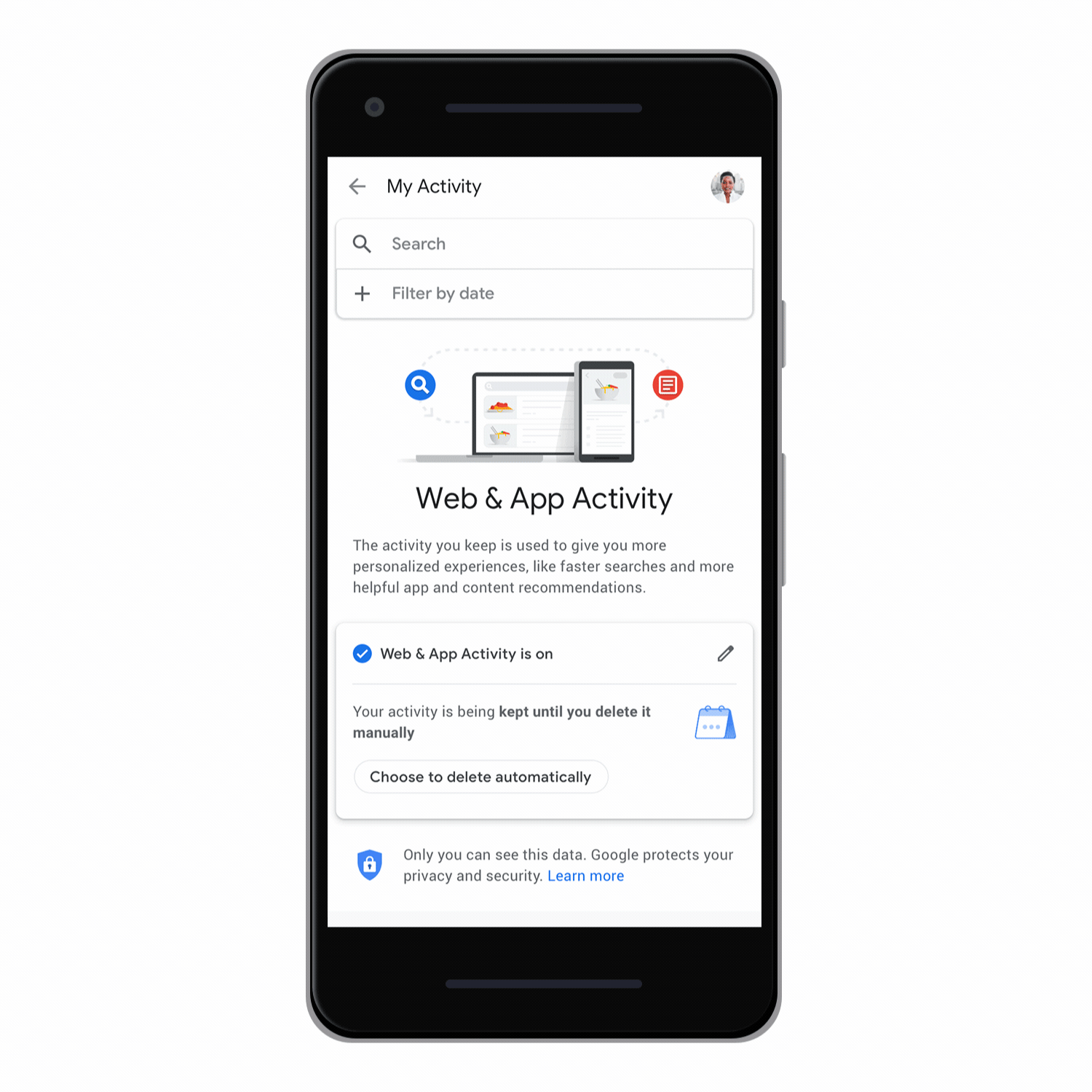Google, as well as a number of other companies, tirelessly declares that it protects the privacy and confidentiality of user data. But, the company has repeatedly been convicted of unauthorized collection of huge amounts of information that it can use at its discretion. But
Google is still making some moves towards protecting privacy.
Google will now automatically delete your browsing history
Yesterday, the search giant announced a change in data storage methods. In addition, they have announced plans to update a number of privacy tools. Previously, the history of geolocation, search, and voice commands was stored indefinitely. Now, these personal data will be deleted automatically.
From now on, location information and search queries will be automatically deleted after 18 months. And the list of watched videos on YouTube will be cleaned every 36 months.
But these rules apply to new accounts. While already registered users will be notified about the possibility to configure the auto-cleaning function. They will be able to choose the option to automatically delete data for 18 or even 3 months. If desired, the deletion function can be disabled.
The auto-delete feature itself was announced by
Google last year, but only now it will work. The company also wants to simplify access to anonymous browsing in applications such as YouTube, Maps and Search. You can activate it by a long press on the profile picture of the user. Also in the future, users will be able to use options such as “Google Account Security” and “Google Privacy Check”.
Google: Keeping your private information private
Privacy is at the heart of everything we do. Whether it’s keeping Meet video calls secure, protecting you from security threats, or being the first major company to decide not to make general purpose facial recognition commercially available and create clear AI Principles that prohibit use of our tools for surveillance.
As we design our products, we focus on three important principles. Keeping your information safe, treating it responsibly, and putting you in control. Today, we are announcing privacy improvements to help do that, including changes to our data retention practices across our core products to keep less data by default.
As we make privacy and security advances in our own products, we continue to advocate for sensible data regulations around the world, including strong, comprehensive federal privacy legislation in the U.S. To help inform this work, we’ve published a regulatory framework based on privacy laws and models around the world, such as Europe’s General Data Protection Regulation, and our own experience building privacy-first tools.









